President Raeisi packs quite a punch in debut UNGA speech
By Syed Zafar Mehdi
President Ebrahim Raeisi's maiden address to the UN General Assembly on Tuesday evening packed a powerful punch, unlike anything seen before, reaffirming his reputation as a no-nonsense international leader and statesman who means business.
It marked a stellar debut from the newly-elected president of the Islamic Republic of Iran at the world body, in line with his refreshingly pragmatic and proactive approach in foreign policy matters.
The plain-speaking Iranian president, in a pre-recorded speech, minced no words in calling out the US military-industrial complex for wreaking havoc across the world through its disastrous hegemonic approach, which he said has run its course following the humiliating debacle in Afghanistan.
President Raeisi, unlike his more-bluff-than-substance predecessor, didn't play to the gallery. He didn't beat around the bush. He didn’t use rhetoric to drive his point home. He was brutally blunt, scathing, aggressive, and yet so calm. He stared into the eye of an enemy and punctured his inflated ego, in front of the world.
Iranian president’s speech Tuesday evening will certainly go down as one of the most power-packed, eloquent speeches at the UN General Assembly, which came barely hours after US President Joe Biden’s lackluster show, in which he repeated the same hollow promise of returning to the 2015 Iran nuclear deal, without making the first move of course.
President Raeisi, who took the oath of office early August following a thumping win in the June presidential vote, seized the opportunity of directly addressing the world leaders for the first time and reminded them that the American war machine has run out of fuel. He showed mirror to the ‘naked emperor’ and dared to lay bare his vanity and self-centeredness.
Referring to two tragic incidents that shook the world this year – the insurrection at the US Capitol on Jan. 6 and desperate Afghans falling to their deaths from a US aircraft in Kabul on Aug. 15 – Iran’s president said the events bear a message that the US’ hegemonic project has no credibility and no takers, both at home and abroad. Both incidents will haunt the haughty American rulers forever.
The US “idea of hegemony” as well as the project of imposing “Westernized identity” in the region, he affirmed, has “failed miserably” and the result is “blood-spilling, instability and ultimately defeat and escape”, pointing to the disastrous foreign military occupation of Afghanistan for 20 long years, which ultimately ended in a worst political and strategic debacle.
As President Raeisi noted, the foreign occupiers did not “withdraw” but were expelled from the war-ravaged South Asian country, and those who pay the price of such “irrationality” are people from Afghanistan, Syria, Yemen, Palestine, as well as the American tax-payers.
He is spot on. The venom-spewing, war-mongering hawks in the power corridors of Washington live in a bubble, isolated from happenings around the world. They declare wars and military invasions from their ivory towers, and when the adventures backfire, they call back their troops and pretend as if nothing happened. But, as the former US President Abraham Lincoln once remarked, you cannot fool all the people all the time. His words perhaps were addressed to his political heirs.
The futility of American foreign military invasions, as President Raeisi deftly touched upon in his UNGA speech, is something that even the hawks in Washington have come to acknowledge and regret. The trillions of dollars spent in military adventures thousands of miles away, without achieving any of the stated objectives, defies logic. Worse, these adventures have not only failed to bring peace and democracy but spawned terrorism, instability and mass displacement of vulnerable people.
President Raeisi’s clarion call should not be disregarded or played down. As he remarked, the West needs to realize that “the perseverance of nations is stronger than the power of superpowers”, which was clearly evident in Afghanistan, Syria, Iraq, and Yemen. The so-called “superpowers” and their heavily-armed mercenaries had to eat humble pie in front of the forces of resistance.
Iran’s president, in his characteristic straightforward style, slammed the US for using sanctions as a tool to subdue the nations that refuse to be subservient to the American empire. Calling the brutal, crippling sanctions as “crimes against humanity”, especially amidst the Covid-19 pandemic, President Raeisi reminded the international community that sanctions against Iran didn’t start with the country’s nuclear program but go back to 1951 when the Americans and the British together backed a military coup against a democratically-elected government in Tehran.
He particularly denounced sanctions on medicine and other humanitarian goods, calling it an “organized crime against humanity”. He also spoke about impediments created by the US sanctions on Iran’s efforts to import Covid-19 vaccines from “reliable international sources”, while hailing Iranian scientists for spearheading efforts to indigenously produce their own vaccine.
It’s important to note that Iran has been fighting a lonely battle against the pandemic under extremely challenging conditions. Healthcare workers have been pulling out all the stops, despite a lack of resources and an acute shortage of medicine and equipment. Although medicine is technically exempted from sanctions, foreign companies have been under pressure from anti-Iran hawks in Washington, who have made no secret of their desire to see Iranians choked to death.
Addressing the world leaders, President Raeisi described coronavirus as a “wake-up call” for the world and a timely reminder that “security of all human beings is interdependent”, while calling for cooperation and coordination between the countries in the realm of health and vaccines.
He went on to blast the US “maximum pressure” campaign against Iran, a brainchild of former US President Donald Trump, which he declared a “total failure”. “We want nothing more than what is rightfully ours,” he said, throwing the call in Biden’s court. This has been the principled stand of the new Iranian government, based on the instructions of the Leader of the Islamic Revolution: the US must return to the deal and lift sanctions before Iran verifies the same and returns to its full compliance.
President Raeisi hailed Iran’s “smart and dynamic resistance” to the US maximum pressure campaign, emphasizing that the perseverance has “yielded results”. He dismissed Western and Israeli media reports about Iran developing nuclear weapons, saying production and stockpiling of atomic weapons goes against Iran’s strategic policy, and is forbidden under religious decrees.
Ironically, as Iran’s envoy to Vienna-based organizations Kazem Gharibabadi noted on Wednesday, those worried about Iran ramping up its uranium enrichment to 60 percent have decided to sell nuclear-powered submarines to Australia using above 90 percent highly enriched uranium (HEU) fuel. And let’s not forget the regime that sees Iran as an existential threat is a nuclear power itself.
But, Iran shall not be provoked to enter the nuclear arms race. As President Raeisi stressed, the strategic affairs of the Islamic republic are rooted in the ideas of Imam Khomeini, the founder of the Islamic revolution, as well as the Islamic concepts like rationality and prudence, which have been the basis of resistance against the arrogant powers.
Iran’s president also reminded the Western countries about the role played by top anti-terror commanders Gen. Qassem Soleimani and Abu Mahdi al-Muhandis in eliminating the threat of Daesh, while reasserting Iran’s policy of preserving the stability and territorial integrity of all the countries in the region. As President Raeisi remarked, had it not been for the two iconic anti-Daesh commanders, the terrorist group would today be knocking at the doors of Europe.
He attributed the growth of terrorism to modern-day life becoming “devoid of meaning and spirituality” as well as poverty, discrimination and oppression. Even worse, he added, is the use of terrorism as an instrument of foreign policy. “You cannot make a terrorist group, such as ISIS, in a certain place and claim to fight it somewhere else,” he said, in a salvo aimed at usual suspects.
To ensure that nations decide their own fate, without outside interference, Iran’s president outlined two basic preconditions: an end to foreign aggression and occupation and sincere cooperation in fighting terrorism. In the same breath, he denounced the American military presence in Syria and Iraq as the “biggest hindrance” to the promotion of democracy. “Freedom does not fit in the backpacks of soldiers coming from outside the region,” he said.
In a scathing indictment of the Taliban regime in Afghanistan, President Raeisi said a government that is not inclusive, without the effective participation of all ethnicities, is “doomed to fail” and it cannot bring security to the crisis-stricken country. Importantly, Iran and many other countries in the region have repeatedly called for an inclusive governing structure in post-US Afghanistan, but the calls have been disregarded by the militant group, announcing an all-male, all-Taliban cabinet.
President Raeisi also spoke about the humanitarian crisis in Yemen, calling it “worrying”, and urging the world to “break its silence” on foreign aggression in the Arab country. He further said the all-out blockade of the besieged Gaza enclave in Palestine has turned it into the “biggest prison in the world”, slamming the so-called “deal of the century”, and calling for an inclusive referendum, as proposed by the leader of the Islamic Revolution Ayatollah Seyyed Ali Khamenei years ago.
Iran’s president signed off by extending a hand of friendship to all the countries, especially countries in the neighborhood, for “comprehensive political and economic cooperation”.
“A new era has begun,” President Raeisi announced, saying Iran is ready to play its part “for a better world”. But will the world play the ball? That remains a question.
Syed Zafar Mehdi is a Tehran-based journalist editor and blogger with over 10 years of experience. He has reported extensively from Kashmir, India, Pakistan, Afghanistan and Iran for leading publications worldwide.
(The views expressed in this article do not necessarily reflect those of Press TV.)
Trump threatens 200% wine tariffs on France to push Macron to join Gaza board
Yemen’s Saudi-backed PLC slams UAE for running secret prisons; Abu Dhabi denies
Swiss MPs move to strip UEFA of tax-exempt status over failure to ban Israeli teams
VIDEO | Massive Michigan pileup sees over 100 vehicles collide in highway crash
Diagnosing the roots of Iran’s economic turmoil
VIDEO | Press TV's news headlines
Son of Iran’s deposed Shah urges US, Israel to bomb country after failed ‘regime change’ plot
Jan. 12, 2026 – the day Iranians again rallied to reject hostile plots against Islamic Republic


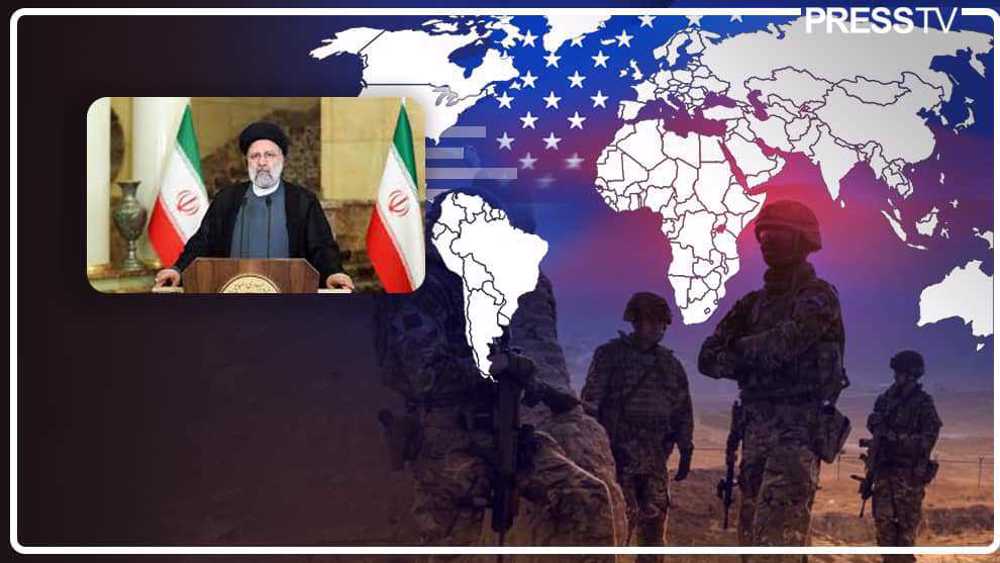
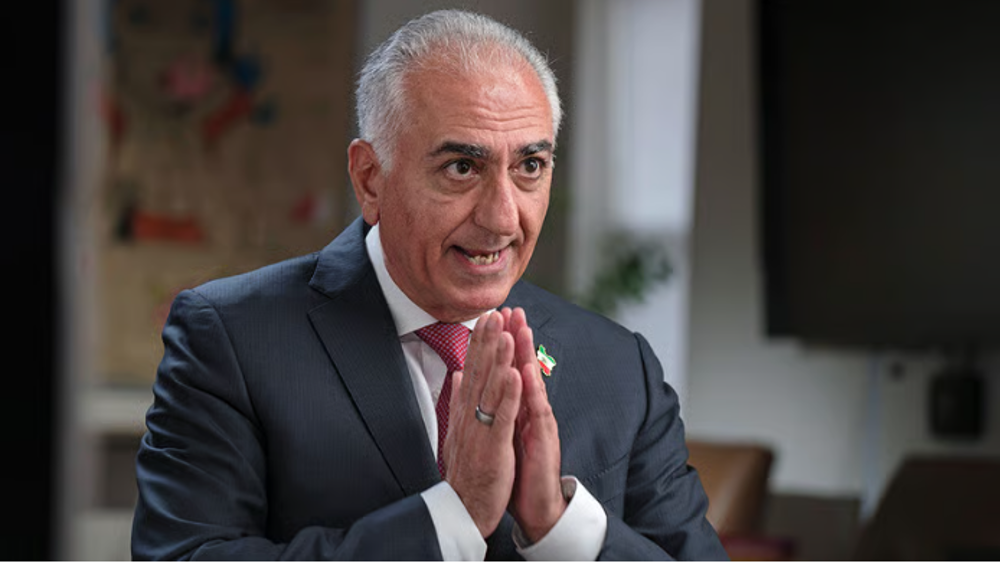
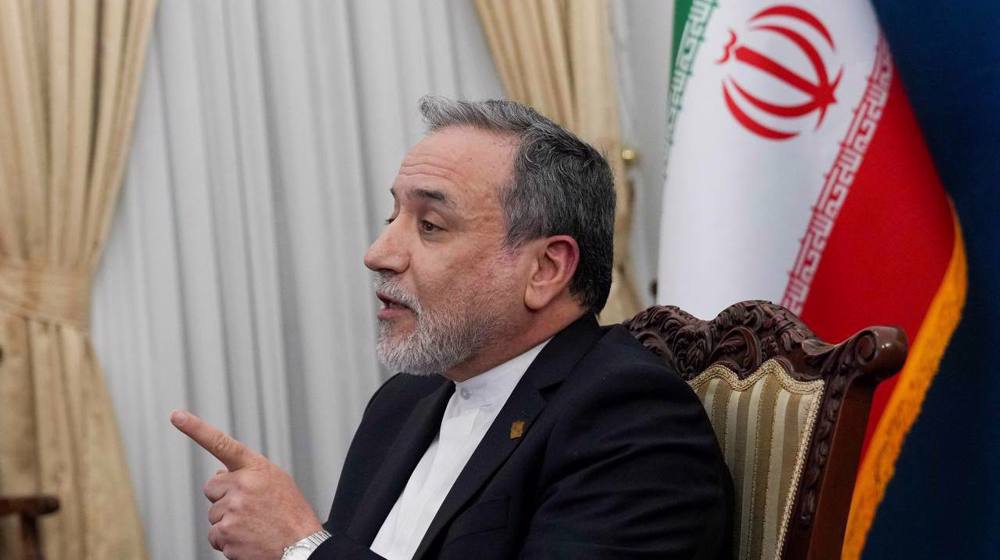
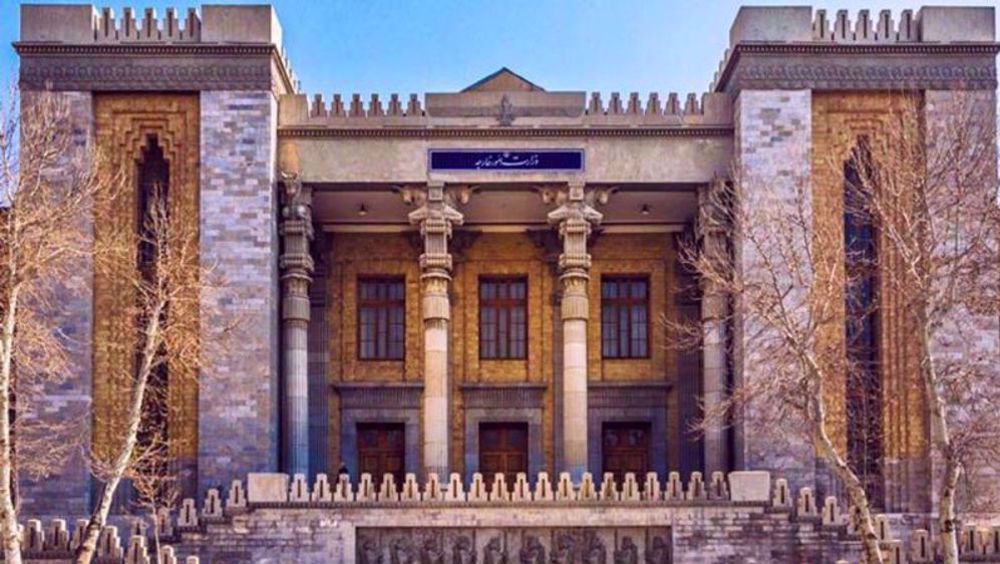



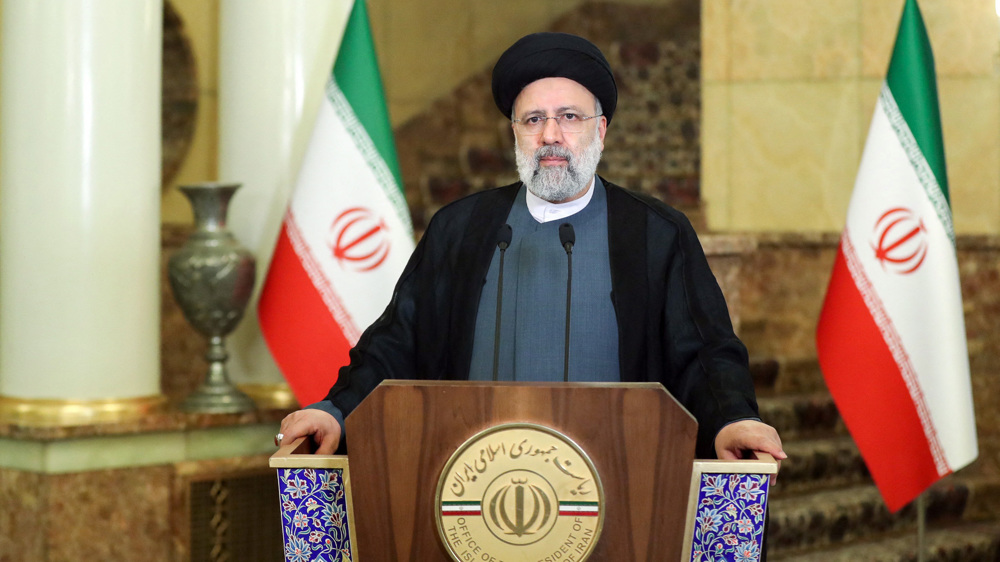
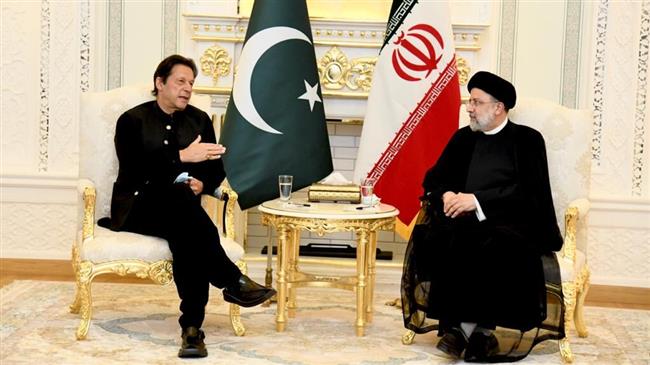
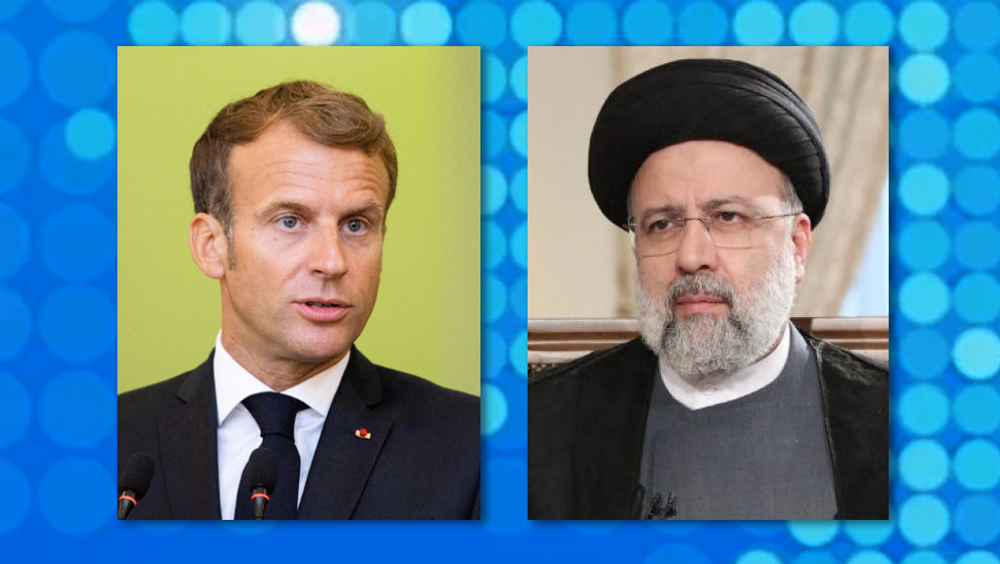
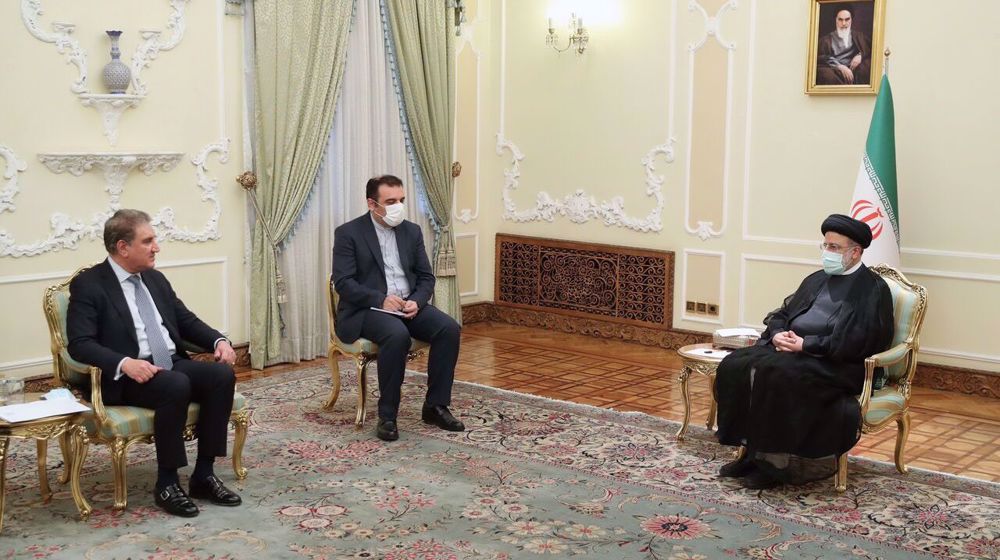

 This makes it easy to access the Press TV website
This makes it easy to access the Press TV website